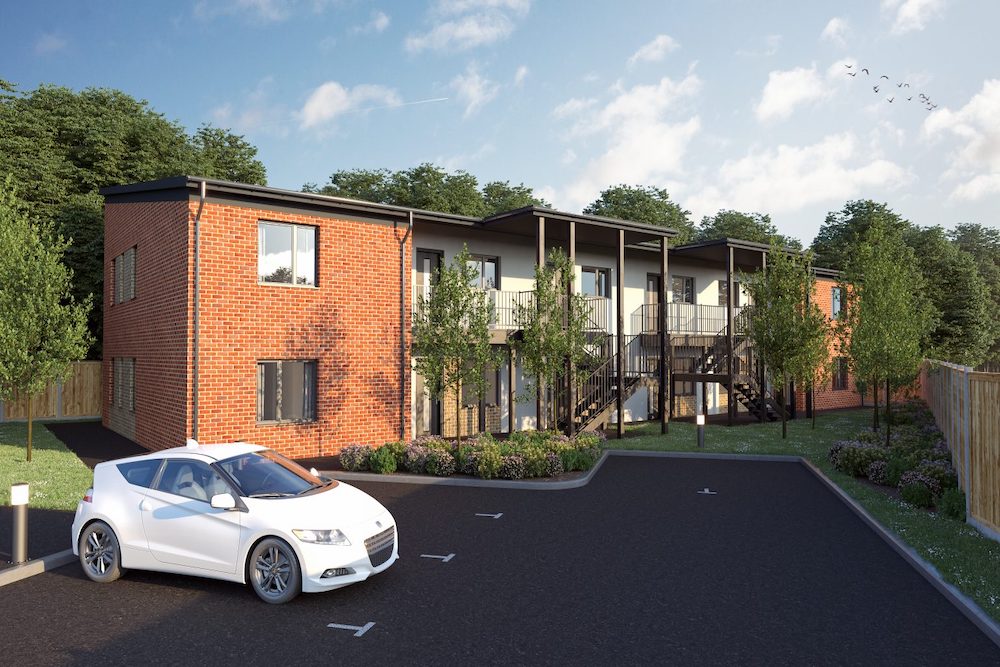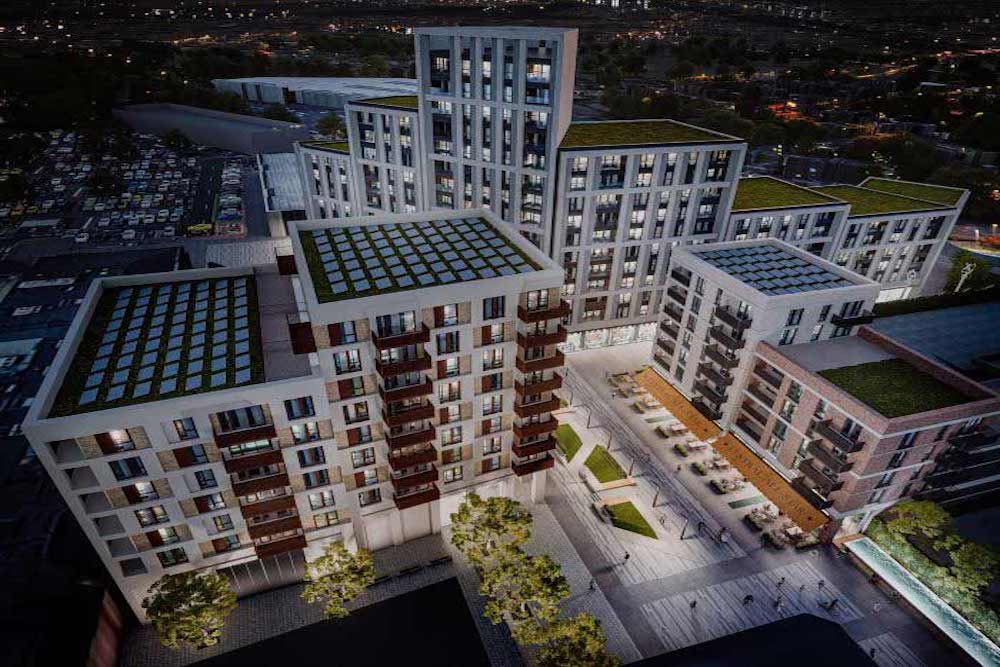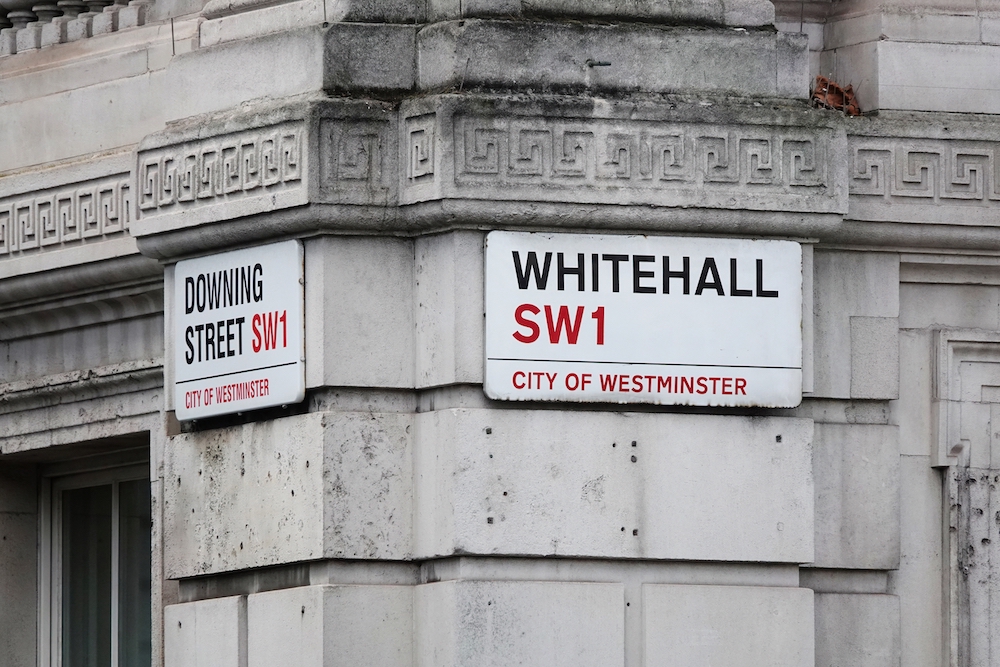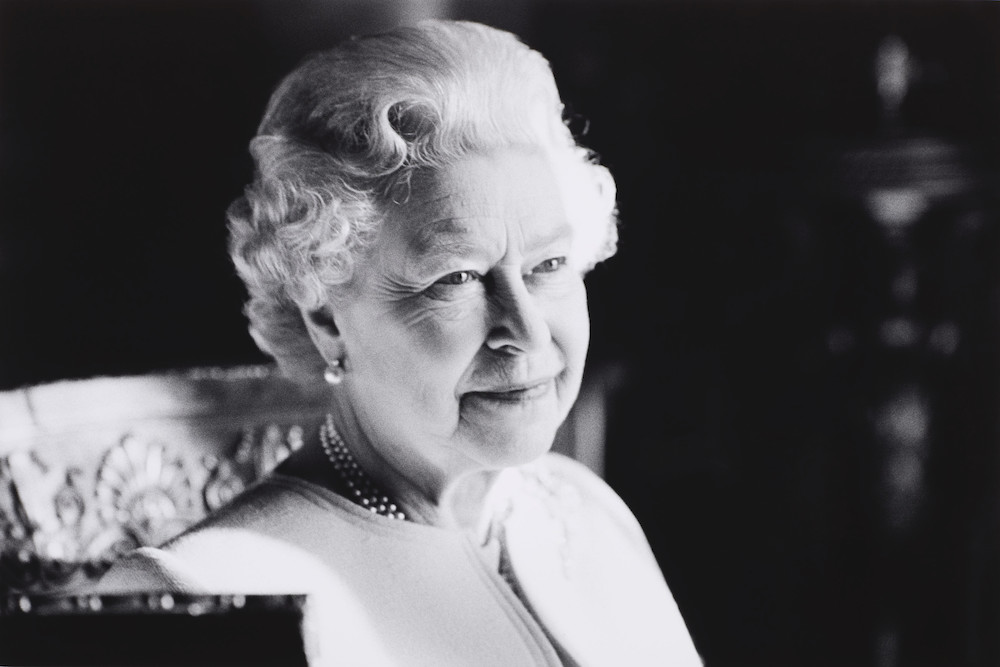
by Simon Fitzsimmons | Nov 13, 2022 | News
Construction on a purpose-designed apartment building that will create residential space for homeless people has begun in Poole, Dorset.
AJC Group has commenced the £3.5million build contract for a Bournemouth, Christchurch, and Poole (BCP) Council project in the coastal town.
The development, located on the site of the former Bourne Valley Community Centre, will create 24 homes for residents who are currently homeless, or who require a form of ‘move-on’ accommodation.
Groundworks and infrastructure has been completed and AJC Group is scheduled to complete the construction and fit-out phase by August 2023.
Funded by BCP Council, the new development will meet Passivhaus negligible energy demand principles, helping to reduce fuel poverty. Three out of the 24 new homes will be wheelchair accessible and there will be a communal garden.
David Cracklen, Director of AJC Group, said: “This trailblazing development has been designed locally, it will be constructed by our local supply chain, and as soon as the new homes are handed over to BCP Council, they will be occupied by local people.
“With Poole and Sandbanks being such a tourist hotspot, the need for ‘move on’ accommodation might not be at the forefront of everyone’s minds. However, the high cost of living here is why this scheme on Herbert Avenue is so vital. We are all too aware of the waiting list of people in need for these homes, so we have committed all resources possible to ensure the project is completed to schedule.
“As a specialist in affordable housing, this eco-focused scheme is central to our core social values of building communities and delivering lasting change. We are very proud to be working in partnership with BCP Council on a project that will make a real difference to local people and the local economy.”
BCP Council’s vision for the Herbert Avenue development is to reduce the dependency on inappropriate bed and breakfast accommodation, by providing a more suitable housing solution that can help to stop the cycle of homelessness.
Councillor Phillip Broadhead, Deputy Leader of BCP Council, and Portfolio Holder for Development, Growth and Regeneration, added: “We’ve got a super-ambitious house building programme. We’re aiming to build over 1,000 directly delivered homes over the next few years, and this particular development is delivering for some of our most vulnerable in society, with really good eco-standards as well. It’s keeping jobs in the local economy, helping our residents, and doing it in a way that sets really high standards.”
The ‘Move On’ scheme has been designed by Arcus Consulting, with technical drawings delivered by Christchurch-based ARC Architects.

by Simon Fitzsimmons | Oct 30, 2022 | News
The rising cost of living and uncertainty surrounding energy bills is already being felt by the charity sector with nearly five million people choosing not to make a one-off charity donation last month.
As household budgets feel the pinch, nearly one in ten (9%) people said they held back from donating, according to Charities Aid Foundation (CAF) UK Giving research.
Worryingly for many charities that rely on direct debits and standing orders, more than 3.2m people (6%) also said they had reduced or stopped a regular payment to charity because of increasing living costs.
The research also reveals nearly one in five individuals (19%) are considering cutting back on their donations, compared to 14% six months previously. In August, this number rose to 22% as household concerns around energy bills peaked.
CAF’s UK Giving tracks household donor behaviour every month. The tracker reveals how levels of donations continue to trend downwards. In September, only 26% of people said they had donated in the previous month. Prior to the pandemic, around 30% usually said they gave to charity during September.
The average monthly donation also declined in September, with a mean donation of £51, compared to £67 in August.
Summer has traditionally been a popular time for sponsored sporting events, and September saw the build-up to the London Marathon on 2nd October. However, only 8% of people sponsored someone for charity last month and 5% in August.
Neil Heslop OBE, chief executive of the Charities Aid Foundation, said: “Charities need donations now more than ever, as more families rely on the vital services they provide. Mass giving is crucial for many charities, so as people cut back, Government and private sector funding which supported charities through the pandemic is greatly needed to help them through this crisis.
“With more than £500m of Gift Aid unclaimed which should rightly be with charities delivering frontline services, the process needs to be simplified to deliver desperately needed funds. The Government also needs to address the current complexity of the VAT system since it’s estimated that the sector loses billions paying tax that they cannot recover later.
“Despite falling donations, charities are working hard to help the growing number of families at the sharp end of the cost-of-living squeeze. But ultimately, charities are having to do much more, with much less money.”

by Simon Fitzsimmons | Oct 14, 2022 | News
Sovereign Housing Association has purchased the Princes Mead Shopping Centre and two adjacent retail assets in Farnborough for £17.6 million.
The 61-000-home housing association acquired the 7.77 acre site from Knight Frank Investment Management (KFIM), on behalf of Local Pensions Partnership Investments (LPPI). The deal sees both KFIM and LPPI remain involved in the development project as overage partners.
Sovereign plans to deliver over 350 new homes on the town centre site, creating a residential-led, mixed-use regeneration of the central site in the borough of Rushmoor.
The housing association says the purchase is part of their strategy to meet the growing demand for affordable housing and contribute to the regeneration of towns and high streets; delivering quality homes in well-connected communities.
The planned development forms part of wider regeneration plans for the Farnborough town centre, being brought forward by Rushmoor Borough Council and the Rushmoor Development Partnership.
Their Civic Quarter masterplan incorporates a new leisure centre, civic hub and park, 1,000 new energy efficient homes, and new restaurant, food and beverage areas.
Tom Titherington, Chief Investment & Development Officer at Sovereign Housing Association said: “We are delighted to have acquired our second shopping centre, with a view to the longer-term regeneration potential of the site.
“As our high streets evolve, it becomes increasingly important for forward-thinking housing associations such as Sovereign to take a proactive role in regenerating our town centres, supporting our customers through the delivery of affordable homes and the successful re-imagination of our high streets.”
John Styles, Partner at Knight Frank Investment Management, said: “Having worked with Rushmoor to establish support for a substantial residential-led development scheme we are delighted to have sold the site to Sovereign Housing Association. We are confident that Sovereign will take the project forward maximising the benefits, particularly in terms of affordable housing provision for Farnborough.”

by Simon Fitzsimmons | Sep 24, 2022 | News
The Chancellor of the Exchequer, Kwasi Kwarteng, has announced a new ‘Growth Plan’ which set a target for 2.5% trend of growth, securing sustainable funding for public services and improving living standards for everyone.
Detailing the first steps towards growth, Chancellor Kwarteng revealed a package of major cuts to Stamp Duty Land Tax. The nil-rate band will be doubled from £125,000 to £250,000, meaning that 200,000 more people every year will be able to buy a home without paying any Stamp Duty at all. The standard buyer in England will save £2,500.
The cuts also mean first-time buyers will now pay no stamp duty up to £425,000, and the value of the property on which first time buyers can claim relief has been increased from £500,000 to £625,000.
The Chancellor also announced that he will increase the disposal of surplus government land to build new homes, increasing supply.
Plans have also been set out to tackle to the biggest drag on growth – the high cost of energy driven by Vladimir Putin’s invasion of Ukraine, which has driven up inflation.
To tackle this, the government’s Energy Price Guarantee will save the typical household £1,000 a year on their energy bill with the Energy Bill Relief Scheme halving the cost of business energy bills, reducing peak inflation by about five percentage points.
Also among the new measures revealed in the Growth Plan is cancelling the planned rise in corporation tax, keeping it the lowest in the G20 at 19%, and reversing the 1.25 percentage point rise in National Insurance contributions, a change which will save 920,000 businesses almost £10,000 on average next year.
The Chancellor also announced more relief for businesses by making the Annual Investment Allowance £1million permanently, rather than letting it return to £200,000 in March 2023. This gives 100% tax relief to businesses on their plant and machinery investments up to the higher £1 million limit.
Investment Zones
It was also confirmed that the government is in discussion with 38 local and mayoral combined authority areas in England including Tees Valley, South Yorkshire and West of England to set up Investment Zones in specific sites within their area.
Each Investment Zone will offer tax cuts for businesses and liberalised planning rules to release more land for housing and commercial development. These will be hubs for growth, encouraging investment in new shopping centres, restaurants, apartments and offices, and creating new communities.
Kwasi Kwarteng also outlined sector specific support for pubs and hospitality, including freezing alcohol duty for another year.
The Chancellor also announced a 1p cut to the basic rate of income tax one year earlier than planned. From April 2023, the basic rate of income tax will be cut to 19% and will mean 31 million people will be better off by an average of £170 per year.
The Chancellor also abolished the additional rate of tax, taking effect from April 2023. In its place will be a single higher rate of income tax of 40%. The policy removes the UK’s previous top rate tax, which was higher than countries like Norway, USA and Italy.
Kwasi Kwarteng, said: “Economic growth isn’t some academic term with no connection to the real world. It means more jobs, higher pay and more money to fund public services, like schools and the NHS.
“This will not happen overnight but the tax cuts and reforms I’ve announced today – the biggest package in generations – send a clear signal that growth is our priority.
“Cuts to stamp duty will get the housing market moving and support first-time buyers to put down roots. New Investment Zones will bring business investment and release land for new homes in communities across the country. And we’re accelerating new road, rail and energy projects by removing restrictions that have slowed down progress for too long.
“We want businesses to invest in the UK, we want the brightest and the best to work here and we want better living standards for everyone.”
The full Growth Plan Speech 2022 can be found here.

by Simon Fitzsimmons | Sep 10, 2022 | News
Her Majesty Queen Elizabeth II died peacefully at Balmoral on the afternoon of 8th September 2022, aged 96.
Her Majesty ruled for longer than any other Monarch in British history, ascending to the throne aged just 25. She reigned for over 70 years as the dedicated Head of State and Head of the Commonwealth.
The Queen was served by 15 UK Prime Ministers during her reign, beginning with Winston Churchill in 1952, as well as many Prime Ministers across her Realms.
Throughout Her Majesty’s daily working life she was in contact with UK and Commonwealth ministers and representatives, dealing with the red dispatches boxes that carried State papers and meeting regularly with her Prime Ministers. The Queen had links – as Royal Patron or President – with over 500 charities, professional bodies and public service organisations. She was also Head of the Armed Forces.
The UK honours system enabled The Queen to confer titles such as MBEs, OBEs and CBEs on people from all walks of life in public recognition of their merit, service or bravery. Garden Parties at Buckingham Palace and the Palace of Holyroodhouse, receptions and other awards given in her name also allowed Her Majesty to say ‘thank you’ to just some of those who had made a significant contribution to the life of the nation.
The Queen’s husband His Royal Highness The Prince Philip, Duke of Edinburgh, who died 9th April 2021, was a constant by her side accompanying her on visits in the UK and overseas and for all of her ceremonial duties, from the State Opening of Parliament to State Visits and annual Remembrance events.
The eldest of their four children, formally known as The Prince of Wales, now ascends the throne as King Charles III.
The Queen’s State Funeral will take place at Westminster Abbey on Monday 19th September at 1100hrs BST. Prior to the State Funeral, The Queen will Lie-in-State in Westminster Hall for four days, to allow the public to pay their respects.




